#franz arno wagner
Explore tagged Tumblr posts
Text
cinematography by Franz Arno Wagner and Günther Krampf
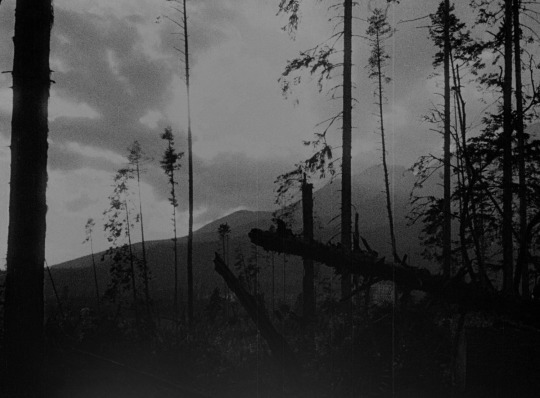
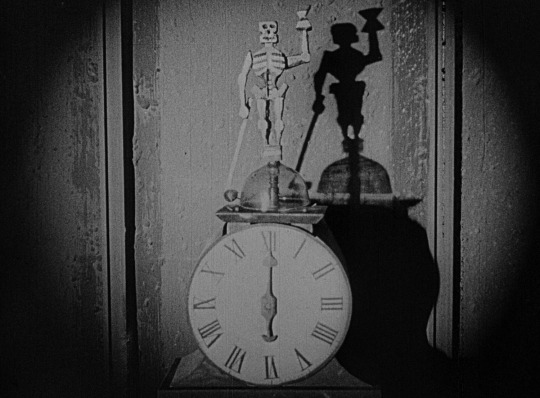
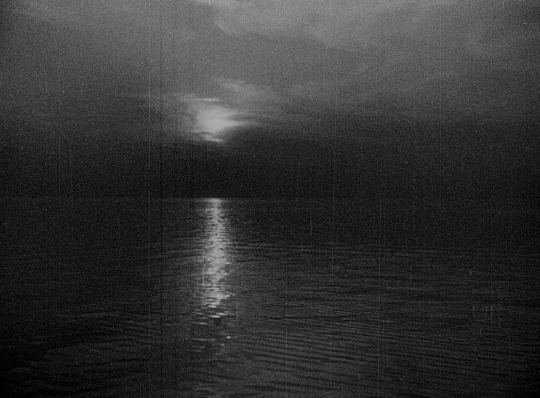
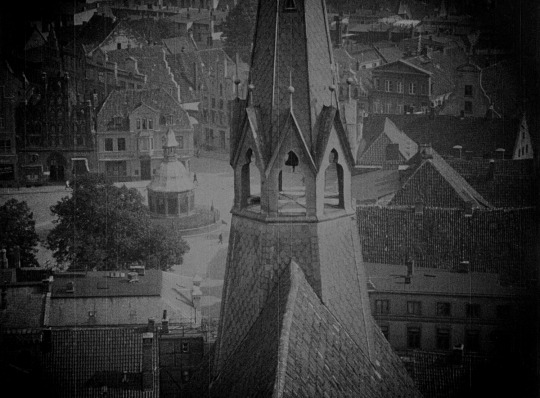

Nosferatu, eine Symphonie des Grauens (1922)
#nosferatu#nosferatu eine symphonie des grauens#friedrich wilhelm murnau#f. m. murnau#günther krampf#franz arno wagner
357 notes
·
View notes
Text
As an addition to @franzliszt-official's Lisztober's Wagner Day:
We actually did it. We actually decided, without further ado, that we would go to Bayreuth on November 1st to collect video material. Why on November 1st? Because it's a public holiday here in Germany and we’ll have a long weekend. And because we will probably fall into a deep hole after the end of Lisztober. All the tension will fall apart drastically.
We only thought of this AFTER we had made arrangements for our holiday flat: It's All Saints day.
What a brilliantly shitty idea to make a video fort he Maidchen in a Catholic cemetery in Bavaria (!!!) on All Saints Day. xD. God, we are a bunch of idiots.
After all, that evening the final of the ‘Franz Liszt Competition’ for pianists from all over the world takes place in Bayreuth. In a youth centre. Of course. In a youth centre. Where would you rather show off your skills?
By the way: the hotel search alone made us furious. ‘Hotel Rheingold’? ‘Apartment Götterdämmerung’? Bayreuth, you're out of your mind. Really. We already suspected the whole Wagner cult there would give us massive nightmares, but we didn't expect it to be so bad in advance. We booked the only hotel without any Wagner reference within the city centre.
And then we also had a look at the Liszt Museum, which, OH WONDER, is not near Wahnfried only, but also in the Wahnfried Street. Yeahy. And the press release from the city of Bayreuth has already put us in a REALLY GOOD Mood:
‘During the night from July 31st to August 1st Franz Liszt died in the presence of Cosima (HAHA) and was buried (‘buried’) on August 3rd at the Bayreuth city cemetery. The house he died in, Wahnfriedstraße 9, has been the Franz Liszt museum since 1993. A bust of Liszt from Arno Breker stands on the green hill in the park of the Opera Festival House, not far from the bust of Richard Wagner also from Arno Breker.’
‘Not far from the bust of Richard Wagner.’ Oh yes, that's very important to mention! And, hoodelally, Arno Breker, our nipples are exploding with delight. Do you know what else Arno Breker made? No? A bust of Hitler. Because he was a Nazi fellow and an artistic sycophant of Adolf. Whoohoo.
And the damn group ticket is of course for both the Wagner Museum and the Liszt Museum. And we swear, if we're really that stupid and go to the Wagner Museum, we'll need tranquilisers before we're handed audio guides. The exhibition in the Wagner Museum itself also makes our hearts beat faster: ‘Composer, poet, playwright, author, director, conductor, egomaniac, philanderer, anti-Semite, left-wing radical (WHUT?), climate activist (DOUBLE WHAT?), animal lover (like Hitler?), genius (lol) ... who was Richard Wagner?’ An arse! You don't need a whole exhibition, let alone a museum, to know that. READ HIS F***** Bio! Really! How can anyone dig this idiot, when you know his biography????
And then let's see what glorious 3 sentences there are about Liszt on the official Bayreuth tourism site...Yawn!
But, oh, we could also be interested in ALL of that, too!:

The Walk of Wagner! Awesome!
What's that? Let's see:
‘The Walk of Wagner connects authentic Wagner sights between Haus Wahnfried and the Festspielhaus. In 2013, the composer celebrated his 200th birthday and this was the occasion to create the Walk of Wagner - modelled on Hollywood's famous Walk of Fame.’
ROFL! Oh, we're dying of excitement. Hopefully we remember to eat enough so we can vomit at every stop!
It's going to be a real horror trip the day after Halloween. Look forward to seeing us, Bayreuth, really, look forward to it.
4 notes
·
View notes
Photo
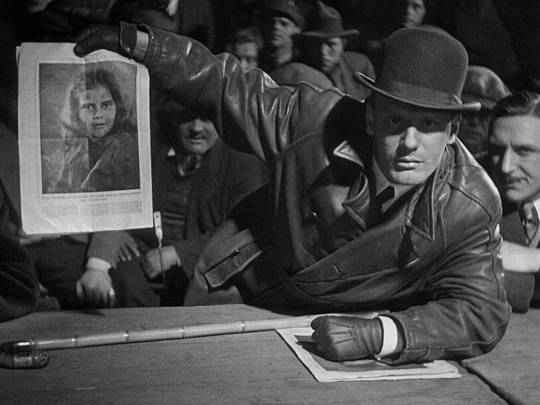
Gustaf Gründgens in M (Fritz Lang, 1931)
Cast: Peter Lorre, Ellen Widman, Inge Landgut, Otto Wernicke, Theodor Loos, Gustaf Gründgens, Friedrich Gnaß, Fritz Odemar, Paul Kemp, Theo Lingen, Rudolf Blümner, Georg John, Franz Stein, Ernst Stahl-Nachbaur. Screenplay: Thea von Harbou, Fritz Lang. Cinematography: Fritz Arno Wagner. Art direction: Emil Hasler, Karl Vollbrecht. Film editing: Paul Falkenberg.
Point of view is everything in a thriller. Let the viewer see events through the wrong eyes, and suspense goes out the window. The remarkable thing about Lang's great thriller is that the point of view changes so often. It starts with that of anxious parents, knowing that a child-killer is on the loose, then narrows to one particular parent, waiting for her daughter to come home from school for lunch. But then we see the object of her fears, her daughter, making contact with a strange man, and our suspense builds as we return to the worried mother. But as strongly as we sympathize with the mother, we also eventually learn to focus our anxieties elsewhere: on the beleaguered police, on innocent victims of people's suspicions, on the criminal underworld harassed by the police, and eventually even on the murderer himself. There are even moments when, as he becomes the object of the manhunt, trapped in the attic of a building swarming with the criminals in search of him, we find ourselves semi-consciously rooting for him to escape. Then we find ourselves rooting for the criminals to capture him and to escape being caught by the cops. And then, when he is put on trial by the criminals, we root for the police to arrive and rescue him. In short, the movie is a study in the ways in which sympathy can be manipulated. Lang and his soon-to-be-ex-wife Thea von Harbou wrote the screenplay, and the atmosphere of the film is superbly maintained by the cinematography of Fritz Arno Wagner and the sets of Emil Hasler and Karl Vollbrecht. But none of it would work without the presence of some extraordinary performers, starting with Peter Lorre as the sniveling, obsessed Hans Beckert: a career-defining performance in many ways, considering that Lorre had been known for comic roles on stage before Lang made him a movie star. Then there's Otto Wernicke as Inspector Lohmann, whose performance was so memorable that Lang brought him back as the same character in The Testament of Dr. Mabuse (1933), stereotyping Wernicke as a cop for much of his career. And Gustav Gründgens, the imperious leader of the criminal faction, who later became identified with the role of Mephistopheles in stage and screen versions of Goethe's Faust (Peter Gorski, 1960) -- not to mention in Klaus Mann's 1936 novel, Mephisto (and István Szabó's 1981 film version), based on Gründgens's embrace of the Nazis to advance his career.
15 notes
·
View notes
Text
M (1931) – Episode 113 – Decades of Horror: The Classic Era
"That is a nice ball you have." Creepy? Yes! Very creepy. Join this episode’s Grue-Crew - Whitney Collazo, Chad Hunt, Daphne Monary-Ernsdorff, and Jeff Mohr - as they take in what might well be the prototype serial killer film, Fritz Lang’s M (1931), starring Peter Lorre.
Decades of Horror: The Classic Era Episode 113 – M (1931)
Join the Crew on the Gruesome Magazine YouTube channel! Subscribe today! And click the alert to get notified of new content! https://youtube.com/gruesomemagazine
ANNOUNCEMENT Decades of Horror The Classic Era is partnering with THE CLASSIC SCI-FI MOVIE CHANNEL which will now include video episodes of The Classic Era! Available on Roku, AppleTV, Amazon FireTV, AndroidTV, Online Website. Across All OTT platforms, as well as mobile, tablet, and desktop. https://classicscifichannel.com/
When the police in a German city are unable to catch a child murderer, other criminals join in the manhunt.
IMDb
Director: Fritz Lang
Writers: Thea von Harbou (script), Fritz Lang (script)
Cinematographer: Fritz Arno Wagner
Selected Cast
Peter Lorre as Hans Beckert
Otto Wernicke as Inspector Karl Lohmann
Gustaf Gründgens as Der Schränker (The Safecracker)
Ellen Widmann as Mother Beckmann
Inge Landgut as Elsie Beckmann
Theodor Loos as Inspector Groeber
Friedrich Gnaß as Franz, the burglar
Fritz Odemar as Falschspieler (Cheater)
Paul Kemp as Taschendieb (pickpocket with seven watches)
Theo Lingen as Bauernfänger (con man)
Rudolf Blümner as Beckert's defender
Georg John as blind balloon-seller
Franz Stein as minister
Ernst Stahl-Nachbaur as police chief
Gerhard Bienert as criminal secretary
Karl Platen as Damowitz, a night-watchman
Rosa Valetti as innkeeper
Hertha von Walther as prostitute
Hanna Maron (uncredited) as girl in circle at the beginning
Heinrich Gotho as passer-by who tells a kid the time
Klaus Pohl as witness / one-eyed man (uncredited)
Daphne is taken in by Fritz Arno Wagner’s beautiful cinematography and Peter Lorre’s mind-blowing performance. She is also intrigued with how Lang uses sound, emphasizing silence as much as sound. Certain elements of M, for instance, the pacing, make it hard for Whitney to get into the film. On the other hand, she enjoys Peter Lorre’s performance and is definitely creeped out by some scenes. M seems almost like two different movies to Chad. The pacing during the first half is not to his liking, but once everyone is on the trail of Peter Lorre’s character, he really got into it. And, of course, Peter Lorre for the win! Jeff loves M and could watch it just for the cinematography and Peter Lorre’s acting.
You know you want to check out or revisit M, right? At the time of this writing, it is available to stream from HBO max, the Criterion Channel, and Kanopy. M is also available on physical media as a Criterion Collection Blu-ray.
Gruesome Magazine’s Decades of Horror: The Classic Era records a new episode every two weeks. Up next on their very flexible schedule is one chosen by Daphne: Charles Laughton’s The Night of the Hunter (1955), starring Robert Mitchum, Lillian Gish, and Shelley Winters. You will not want to miss that one!
Please let them know how they’re doing! They want to hear from you – the coolest, grooviest fans: leave them a message or leave a comment on the site or email the Decades of Horror: The Classic Era podcast hosts at [email protected]
Check out this episode!
1 note
·
View note
Text
Hundert notwendige Gedichte LII — Detlev von Liliencron
LePenseur:"Hätte er kein anderes Gedicht geschrieben als dieses — er wäre damit einer der granz, ganz Großen der deutschen Lyrik: Einer Toten (Aus »Adjutantenritte und andere Gedichte«, 1883) Ach, daß du lebtest. Tausend schwarze Krähen, Die mich umflatterten auf allen Wegen, Entflohen, wenn sich deine Tauben zeigten, Die weißen Tauben deiner Fröhlichkeit. Daß du noch lebtest. Schwer und kalt umsaugt Die Erde deinen Sarg und hält dich fest. Ich geh nicht hin, ich finde dich nicht mehr. Und Wiedersehn? Was soll ein Wiedersehn, Wenn wir zusammen Hosianna singen, Und ich dein Lachen nicht mehr hören kann? Dein Lachen, deine Sprache, deinen Trost: Der Tag ist heut so schön, wo ist Chasseur, Hol aus dem Schranke deinen Lefaucheux, Und geh ins Feld, die Hühner halten noch. Doch bieg nicht in das Buchenwäldchen ein, Und leg dich nicht ins Moos und träume nicht. Paß auf die Hühner und sei nicht zerstreut, Blamier dich nicht vor deinem Hund, ich bitte. Und alle Orgeldreher heut verwünsch ich, Die luftgetragnen Ton von fernen Dörfern Dir zusenden, ich seh dann keine Hühner. Und doch, die braune Heide liegt so still, Dich hält ihr Zauber, laß dich nur bestricken. Wir essen heute abend Erbsensuppe, Und der Margaux hat schon die Zimmerwärme. Bring also Hunger mit und gute Laune. – Dann liest du mir aus deinen Lieblingsdichtern. Und willst du mehr, wir gehen an den Flügel, Und singen Schumann, Robert Franz und Brahms. Die Geldgeschichten lassen wir heut ruhn. Du lieber Himmel, deine Gläubiger Sind keine Teufel, die dich braten können, Und alles wird sich machen. Hier noch eins, Ich tat dir guten Cognac in die Flasche. Grüß Heide mir und Wald und all die Felder, Die abseits liegen und vergiß die Schulden. Ich seh indessen in der Küche nach, Daß uns die Erbsensuppe nicht verbrennt. – Daß du noch lebtest. Tausend schwarze Krähen, Die mich umflatterten auf allen Wegen, Entflohen, wenn sich deine Tauben zeigten, Die weißen Tauben deiner Fröhlichkeit. Ach, daß du lebtest. Ich wenigstens kenne keine berührender Totenklage als diese. Pathetischere — zahllose! Wahrere? Kaum vorstellbar ... Doch Friedrich Freiherr von Liliencron (so sein korrekter Name) hat noch unzählige weitere Gedichte verfaßt, von denen einige ihn bis in den Olymp deutsche Dichtkunst heben, und unzählige, die einen ehrenvollen Platz im Gedächtnis der Leser behalten werden, solange die deutsche Sprache nicht ausgerottet ist ... Heute vor 175 Jahren, am 3. Juni 1844, kam er auf die Welt, und in wenigen Wochen wird sich sein Todestag zum 110. Male jähren. In den nächsten Wochen werden einige dieser Meisterwerke (wenn auch nicht unbedingt in dieser Serie der »Hundert notwendigen Gedichte« ... doch halt: eines noch mindestens wird dazukommen!) auf diesem Blog zitiert werden. »Hundert notwendige Gedichte« (geordnet nach Autorennamen): Werner Bergengruen – Rudolf G. Binding – Bertolt Brecht – Hans Carossa (1) | (2) | (3)– Matthias Claudius – Theodor Däubler – Max Dauthendey – Richard Dehmel – Fritz Diettrich – Annette Droste von Hülshoff – Joseph von Eichendorff (1) | (2) – Theodor Fontane (1) | (2) – Louis Fürnberg – Emanuel Geibel – Stefan George – Hermann von Gilm – Andreas Gryphius — Albrecht von Haller – Hermann Hesse (1) | (2) | (3) – Friedrich Hölderlin – Arno Holz – Ricarda Huch – Friedrich Georg Jünger (1) | (2) – Anna Louisa Karsch – Klabund – Karl Krolow – Li-Tai-Peh (übertragen v. Egmont Colerus) – Conrad Ferdinand Meyer (1) | (2) | (3) – Agnes Miegel – Börries Frh. v. Münchhausen – Friedrich Nietzsche – Wilhelm Raabe (1) | (2) – Rainer Maria Rilke – Eduard Stucken (1) | (2) | (3) – Georg Trakl – Christian Wagner – Anton Wildgans (1) | (2) – Stefan Zweig http://dlvr.it/R5wWhF "
0 notes
Text
[Last Film I Saw] M (1931)
[Last Film I Saw] M (1931)
Title: M Year: 1931 Country: Germany Language: German Genre: Crime, Drama, Thriller Director: Fritz Lang Writers: Thea von Harbou Fritz Lang Cinematography: Fritz Arno Wagner Cast: Peter Lorre Otto Wernicke Rosa Valetti Ellen Widmann Franz Stein Georg John Friedrich Gnaß Fritz Odemar Paul Kemp Theo Lingen Gustaf Gründgens Theodor Loos Rudolf Blümmer Inge Landgut Rating: 9.0/10

My words may be…
View On WordPress
#1931#9.0/10#Black & White#Ellen Widmann#Franz Stein#Friedrich Gnaß#Fritz Lang#Fritz Odemar#Georg John#German Film#Gustaf Gründgens#Inge Landgut#Otto Wernicke#Paul Kemp#Peter Lorre#Rosa Valetti#Rudolf Blümmer#Theo Lingen#Theodor Loos
0 notes